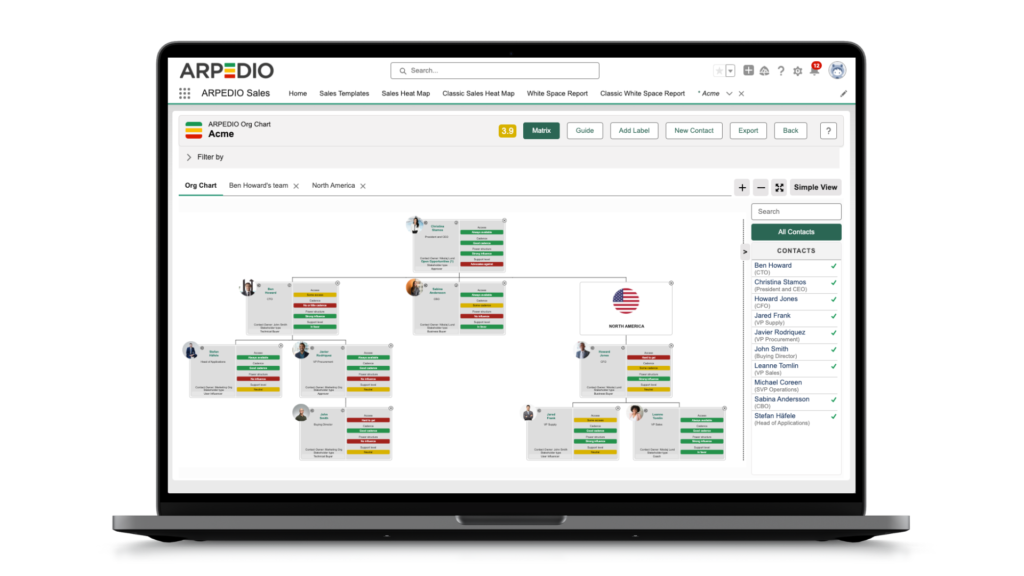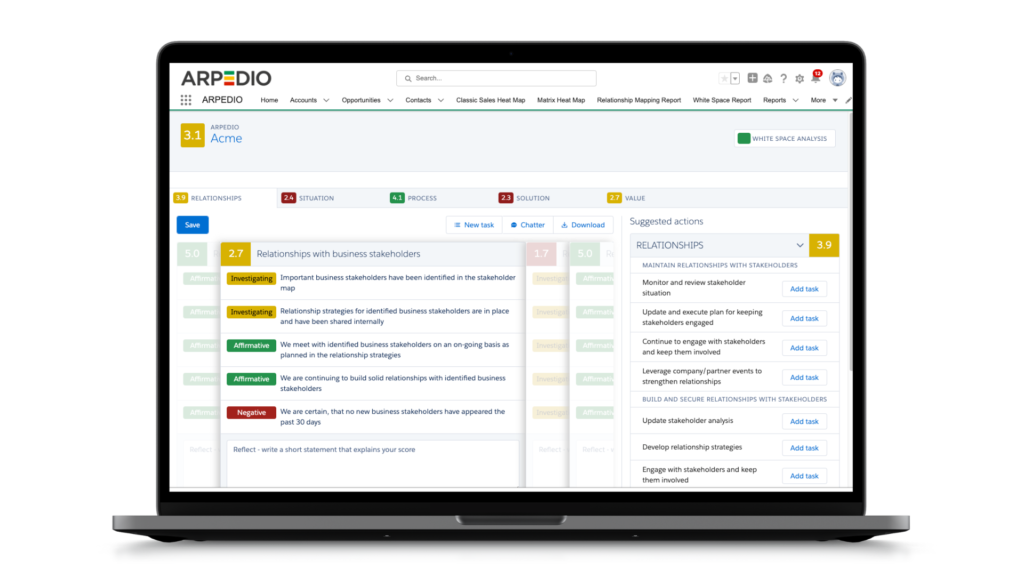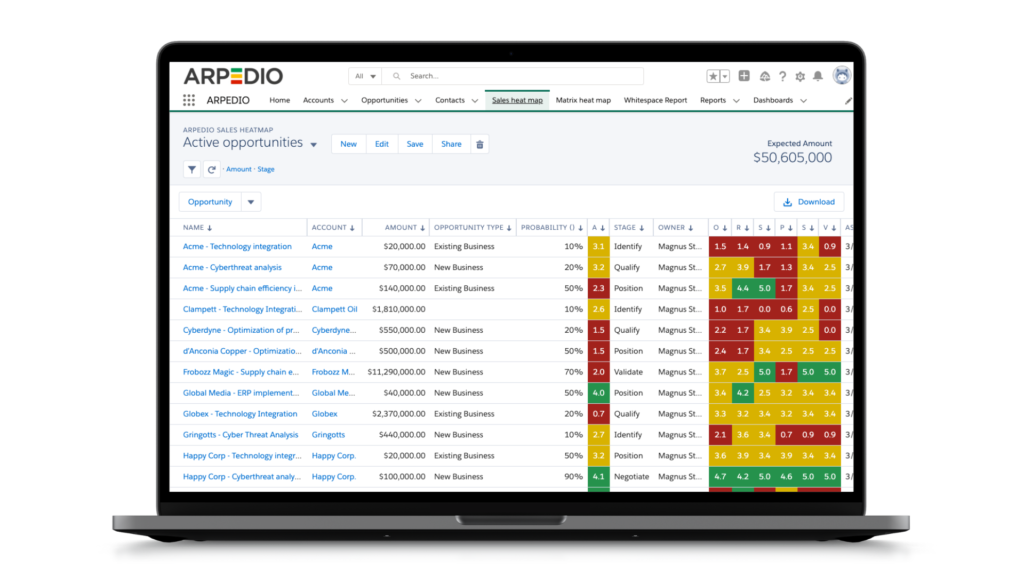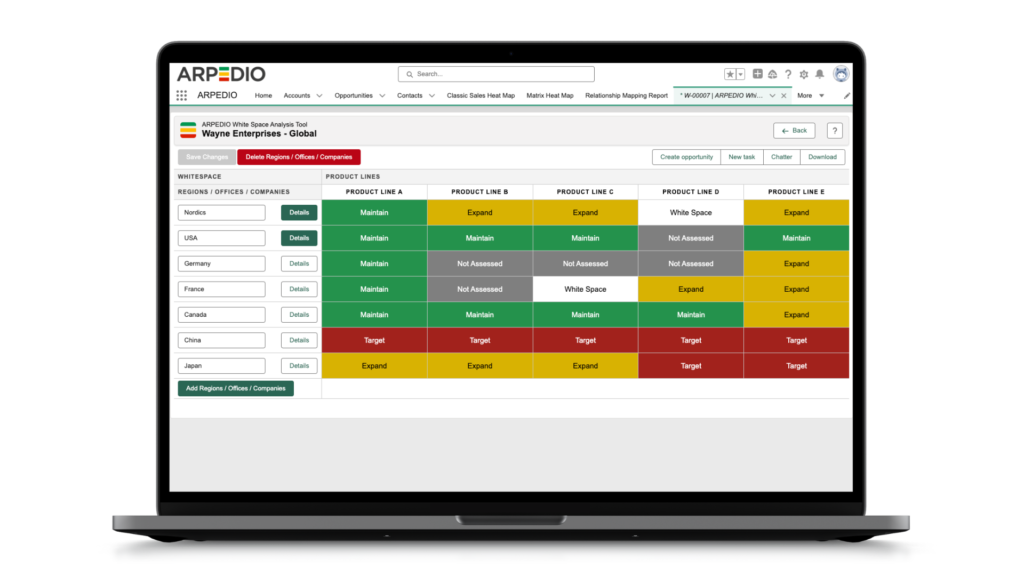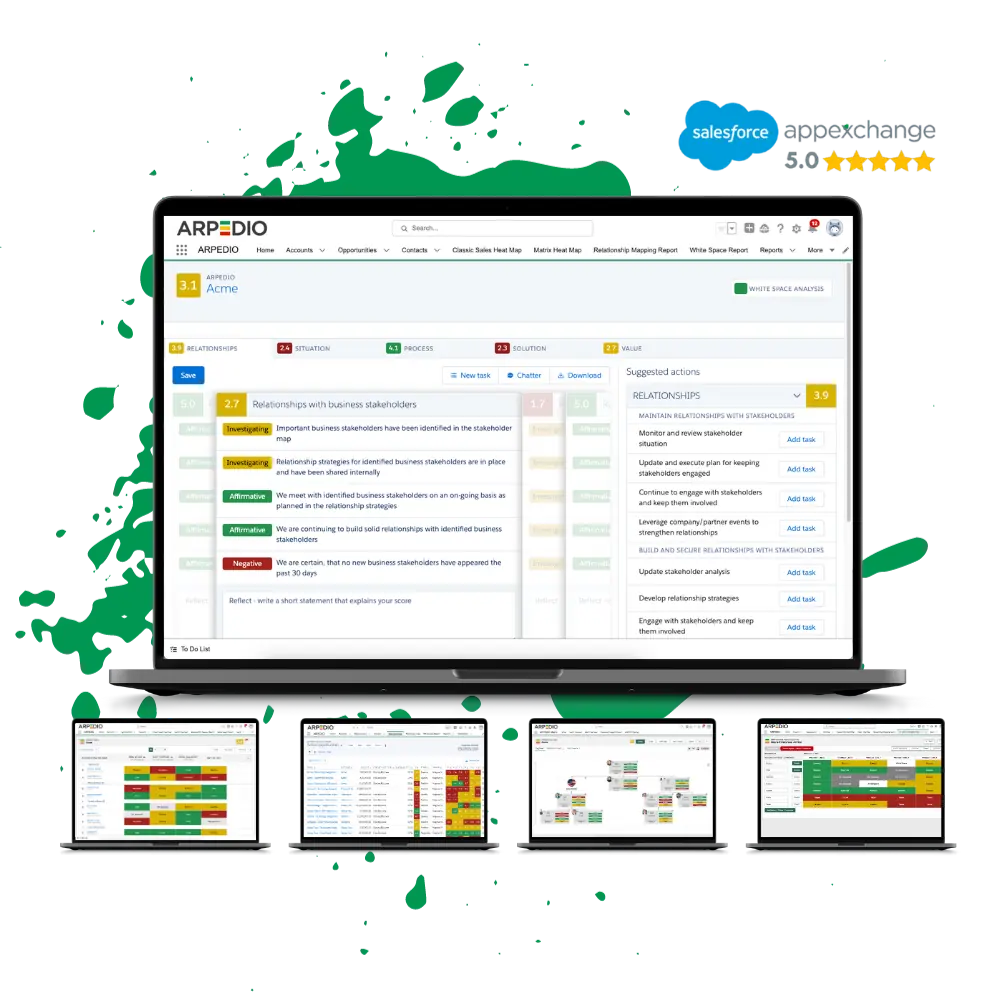1. AI-Driven Sales Automation
Artificial intelligence is transforming how sales teams operate by automating repetitive tasks and streamlining processes. AI tools enable sales professionals to handle hyper-personalized outreach, forecast account behavior, and manage large volumes of data with ease. This allows teams to focus on higher-value activities, like relationship building and strategic selling.
Conversational AI tools, which handle initial customer interactions, are becoming standard, allowing human reps to step in when the opportunity is ready to close. Organizations that integrate AI effectively will see significant improvements in operational efficiency and effectiveness across their sales processes, making the entire pipeline smoother and faster.
2. Account-Based Everything (ABE)
Account-based marketing has evolved into “account-based everything” (ABE), placing high-value accounts at the center of every effort. By aligning sales, marketing, and customer success teams, ABE ensures a unified approach to delivering exceptional value to key accounts. This strategy involves treating each target account as its own market, using intent data to engage at the right moment, and tailoring solutions for stakeholders across the organization. The result is stronger relationships, higher conversion rates, and larger deal sizes.
3. Revenue Enablement Over Sales Enablement
Traditional sales enablement is being replaced by revenue enablement, which aligns all customer-facing teams to ensure consistent messaging and a seamless customer experience. This approach prioritizes customer lifetime value over one-off deals, fostering long-term partnerships. Micro-training, delivered through AI platforms, is becoming the norm, replacing lengthy training sessions and keeping teams agile and informed in real time.
4. The Rise of AI Co-Pilots
AI tools like ChatGPT and Salesforce’s Einstein and Agentforce are increasingly serving as co-pilots for sales reps. These tools provide real-time insights during calls, summarize customer interactions, and generate tailored pitch suggestions. While traditional AI-driven automation focuses on reducing manual effort, AI co-pilots are designed to act like a proactive colleague, autonomously identifying tasks, prioritizing them, and completing them without waiting for instructions.
By enhancing productivity and decision-making, AI co-pilots empower sales professionals to focus on high-impact activities. Their ability to analyze data instantly and offer actionable insights ensures that reps are always one step ahead in their engagements.
5. Focus on Buyer Experience
B2B buyers now demand the same level of convenience and personalization they experience as consumers. To meet these expectations, businesses are offering self-service tools like configurators, chatbots, and interactive demos. Video content is playing a significant role in buyer engagement, providing dynamic ways to present solutions. Organizations that prioritize a seamless and engaging buyer experience will not only close more deals but also foster lasting loyalty.
6. Proactive Retention in Account Management
Retention is becoming a cornerstone of account management. AI tools are helping account managers detect early signs of churn and craft proactive strategies to retain high-value accounts. Upselling and cross-selling are increasingly data-driven, leveraging insights from customer success platforms. By focusing on retention, companies can maximize the lifetime value of their accounts and create opportunities for organic growth.
7. Sales Metrics 2.0
The way sales performance is measured is changing. Traditional metrics like call volume are giving way to more meaningful indicators such as relationship depth, customer engagement, and long-term value. This shift reflects a deeper emphasis on creating impactful customer outcomes rather than just hitting short-term quotas. Sales teams that adopt these modern metrics will be better equipped to demonstrate value and secure buy-in from stakeholders.
8. Gamification and Real-Time Coaching
Gamification is transforming sales training by making it more interactive and rewarding. Sales reps are motivated to master new skills and achieve micro-goals through game-like experiences. Real-time coaching, powered by AI, is another game-changer, offering instant feedback on tone, empathy, and messaging during calls. These innovations not only enhance training effectiveness but also keep teams engaged and prepared for high-stakes interactions.
9. Global Remote Selling 2.0
Virtual selling is here to stay, but it’s evolving with the introduction of more immersive tools like VR and AR. These technologies are being used for product demos, account planning sessions, and other critical interactions, creating experiences that go beyond traditional video calls. Companies that invest in these tools can deliver engaging and memorable presentations, giving them an edge in competitive markets.
10. Sustainability as a Sales Imperative
Sustainability is becoming a key differentiator in B2B sales. Buyers increasingly prioritize eco-friendly solutions, and sales teams must effectively communicate their company’s sustainability efforts. Highlighting how products or services align with environmental goals can strengthen trust and build stronger connections with modern buyers. Companies that embrace sustainability as a core value will not only attract more customers but also contribute positively to global challenges.
11. Ethical AI and Trust Building
With the increasing use of AI, buyers demand transparency. Recent data underscores the critical importance of consumer trust in data privacy. A 2023 survey revealed that 67% of users have little to no trust in companies regarding the handling of their data, a significant increase from 59% in 2019. To overcome this challenge, companies adopting ethical AI practices will gain trust by being transparent about data usage. Ethical AI practices not only stand out in competitive markets but also foster long-term customer loyalty. Organizations that balance innovation with ethical considerations will be better positioned to stay ahead of competitors.
12. Community-Led Growth
Customer communities are emerging as powerful tools for retention and expansion. Engaged user communities help build advocacy within accounts and drive organic growth through peer-to-peer recommendations. By fostering active communities, companies can create brand champions who influence purchasing decisions within their networks. This strategy not only strengthens customer relationships but also generates new opportunities through authentic and trusted recommendations.
Preparing for the Future
The B2B sales world in 2025 is driven by a blend of cutting-edge technology and a human-centric approach. By staying ahead of these trends, sales professionals and account managers can build stronger relationships, deliver greater value, and outpace the competition. Now is the time to embrace innovation, refine strategies, and position yourself as a leader in the evolving landscape of sales and account management.




